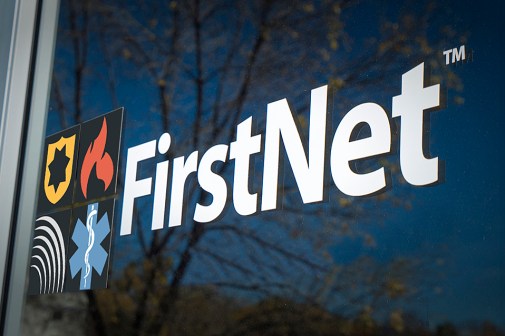New Hampshire becomes first official FirstNet opt-out state

New Hampshire officially became on Thursday the first state to opt out of FirstNet, the nationwide communications network for first responders.
“New Hampshire’s Statewide Interoperability Executive Committee determined from a technical standpoint that an opt-out of FirstNet is far and away our best option,” Gov. Chris Sununu, a Republican, said in a statement. “After reviewing the report from the FirstNet Opt-Out Review Committee, it is clear that while an opt-out decision comes with regulatory and financial risks, those risks can be mitigated through the safeguards and contractual provisions that the committee has recommended.”
The announcement comes a little more than a month after Sununu announced the creation of a committee by executive order to review the risks associated with the pursuit of an opt-out plan. Now, the state will begin negotiations with Rivada Networks, which has the exclusive right to negotiate a contract for the development, provision and implementation of an opt-out plan for the state after the state entered into a no-commitment agreement with the company earlier this year.
“Rivada is honored to have the opportunity to build a world-class public safety [network] for the Granite State,” Rivada Networks Chairman and CEO Declan Ganley said in a statement. “Now the real work of transforming New Hampshire’s public safety communications can begin.”
The New Hampshire alternative network will be required to be interoperable with the nationwide network powered by FirstNet.
Ganley said in the statement that he and Rivada “look forward” to other states joining New Hampshire in building their own networks that will be interoperable with the nationwide network operated by FirstNet and AT&T.
“Rivada and its partners are ready to work with FirstNet and the states to roll out state [networks] in any state that opts to follow this bottom-up approach to emergency communications,” Ganley said.
In his statement, Sununu said the Rivada plan “has the potential to provide immense value” to the state, including “unparalleled” investments in public safety infrastructure that would lead to “near universal coverage” on the new network.
“If we successfully navigate the opt-out path, New Hampshire will retain a level of control that it would not have enjoyed in an opt-in scenario,” Sununu said. “I am pleased that we have the opportunity to pursue a plan that will provide the maximum benefit to our public safety community and all of our citizens. New Hampshire deserves nothing less.”
For months leading up to the opt-out decision, New Hampshire was the only state to have an official opt-out plan in place, In November, however, Colorado joined New Hampshire in selecting Rivada as its alternative plan provider — should the state decide to opt out.
In addition to Colorado and New Hampshire, several states — including California, Washington, Oregon and Wisconsin — have issued requests for proposal to explore the ramifications of an opt-out. Multiple states that have issued those RFPs, however, have ended up opting into FirstNet, including Alabama, Arizona, Michigan and Virginia.
The selection of Rivada Networks to construct and operate New Hampshire’s alternative plan is a boon to the company, which was disqualified from competing on the original nationwide network for FirstNet bid after the Department of Interior determined that the consortium of companies competing on the bid led by Rivada “lacked relevant experience managing subcontracts” and “lacked financial stability” to operate the nationwide network.
In a statement to StateScoop, a FirstNet spokesperson said the agency “worked closely” with all of the states and territories in the lead up to the opt-in/opt-out decision.
“[FirstNet worked] to help them make the most informed decision for their public safety communities, and we support a state’s right to choose whether to opt in to the FirstNet Network or take on the responsibility of deploying the state radio access portion of the network,” the spokesperson said.
“With New Hampshire’s announcement to opt out and deploy their state RAN, FirstNet looks forward to continuing to work with the state following the successful completion of the opt-out process to deliver an interoperable, nationwide network to public safety,” the spokesperson said.
States across the country have until Dec. 28 to decide whether to opt in or out. In the event that a state declines to make a decision by that date, that state will automatically be opted in to the network. At time of publication, 35 states and territories have opted in to the network.






